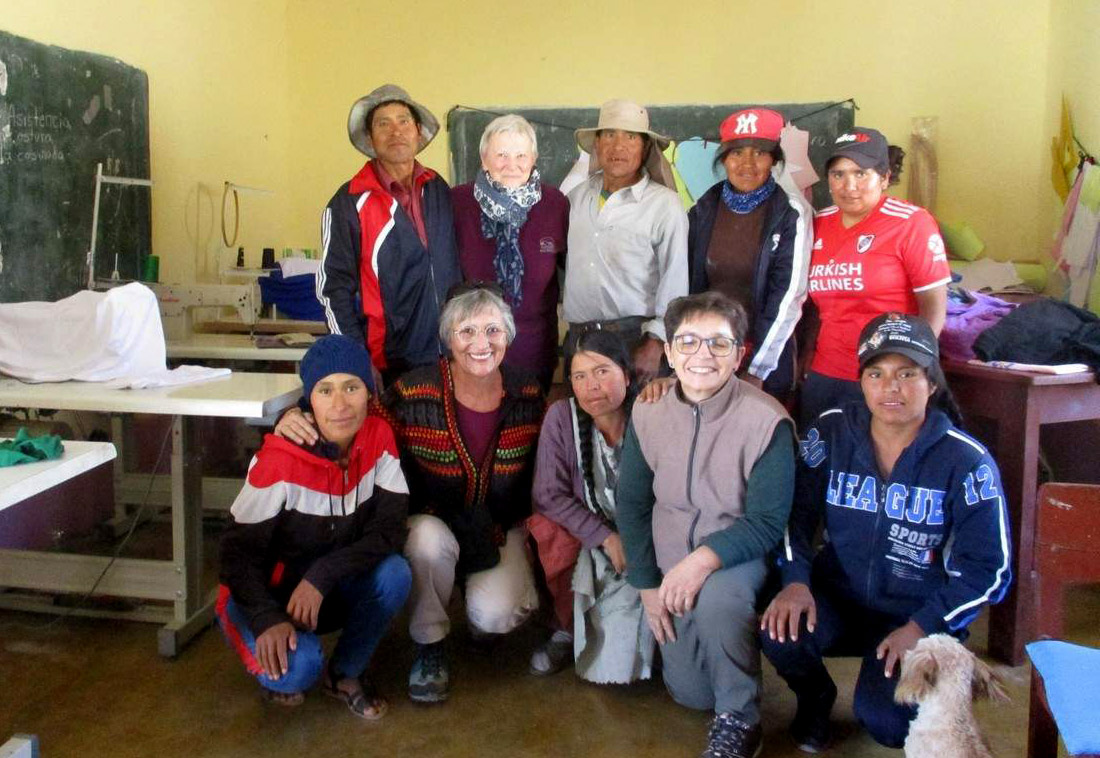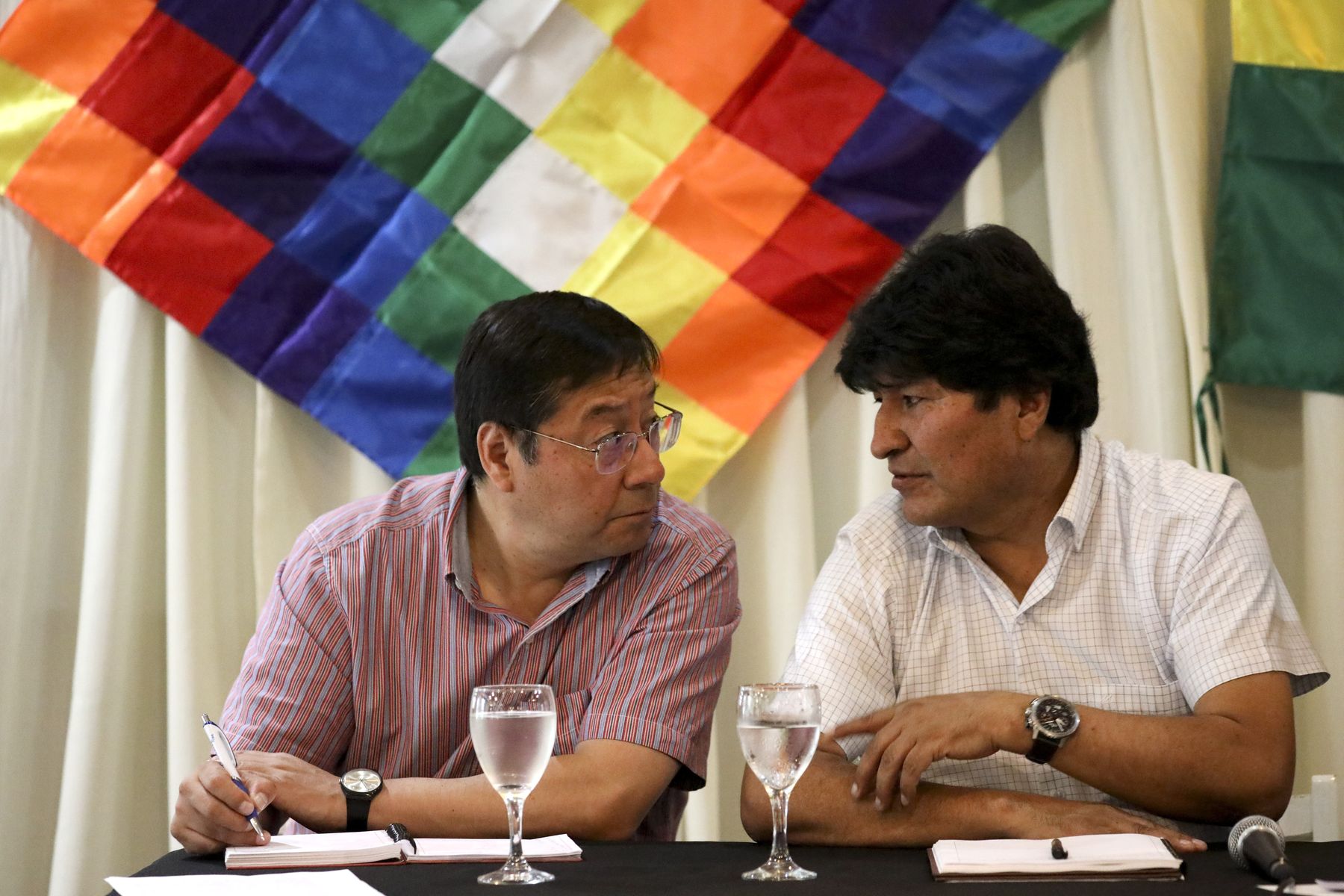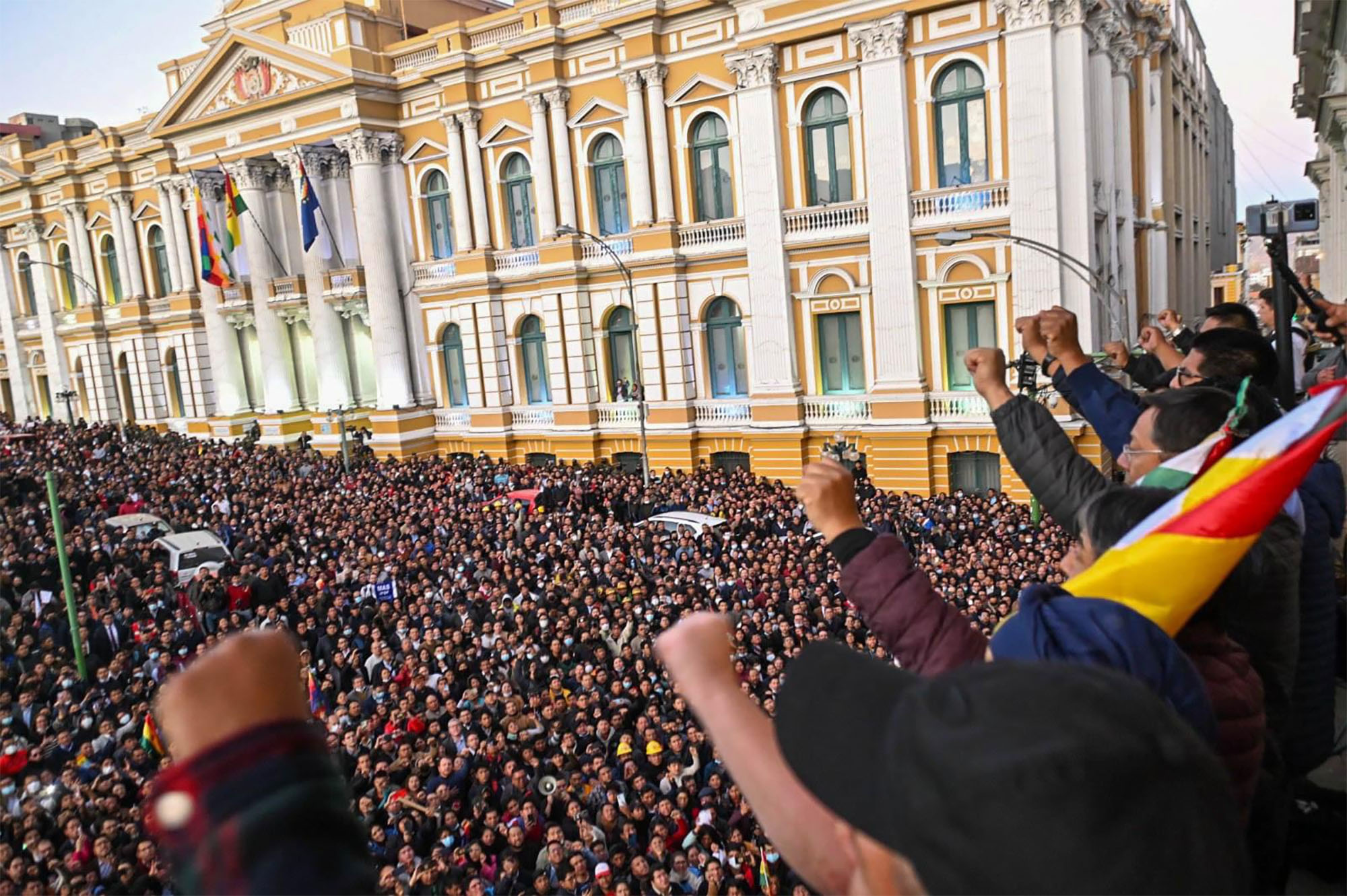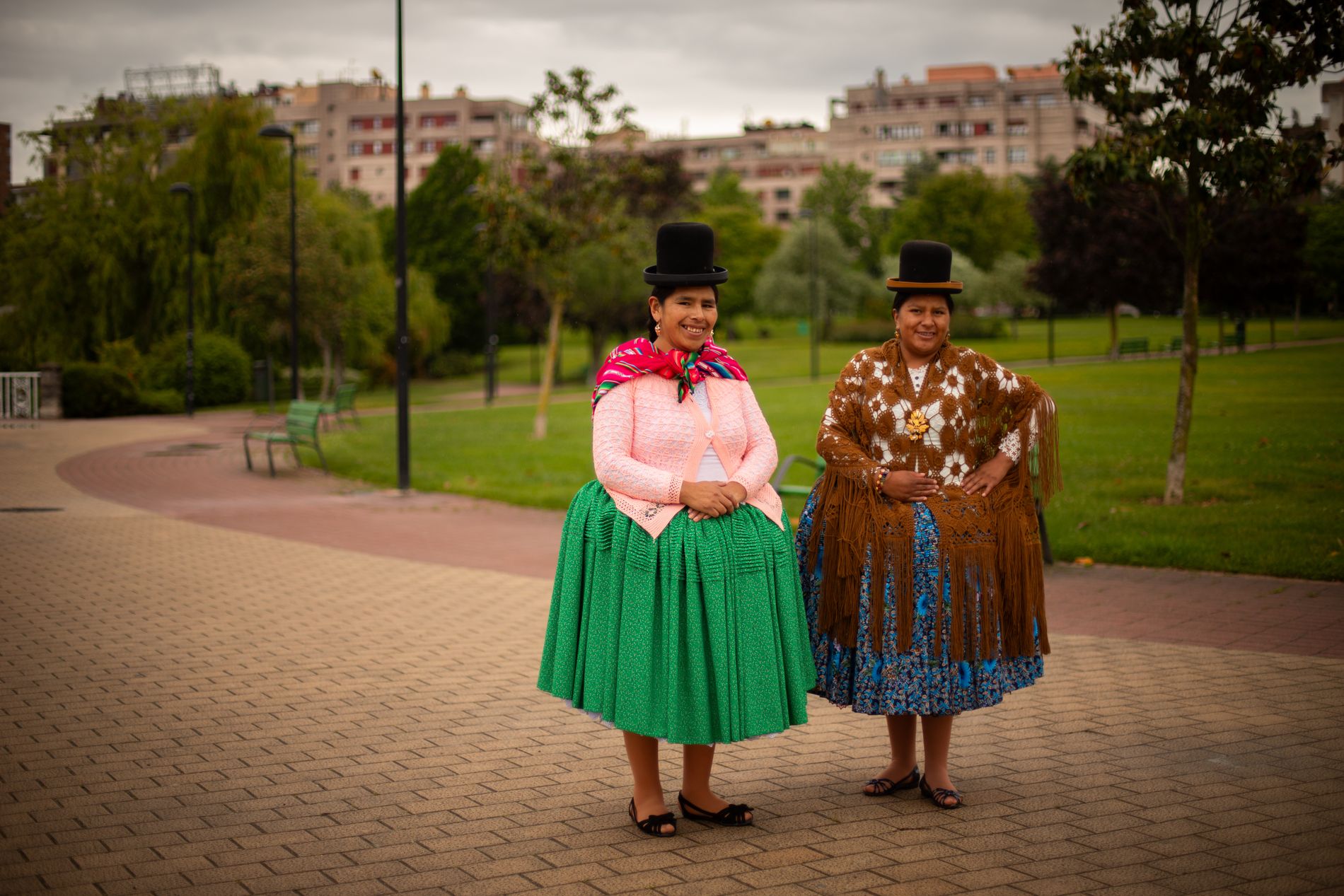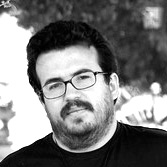“Decolonizing time means giving up capitalist accumulation”
- Adriana Guzmán Arroyo, a popular Aymara educator and referent of anti-patriarchal community feminism in Bolivia, tells us about colonialism, racism, estractivism, mandatory heterosexuality, family, community, state and privilege, and tells us about colors, languages and how to rise up.

Adriana Guzmán Arroyo is a popular Aymara educator, feminist and q’iwsa (non-heterosexual aymaraz). As a child, I saw the Aymar bodies of grandparents, and I felt very close to their skin, their tongue, their language. However, feminist and Aymara realized and recognized themselves after the Gas Massacre in 2003. Thus began his way to break with the colonial and racist ideas that for years were incorporating him into the body.
The members of the Community Feminism of Bolivia come from the fight against patriarchy on the street. In 2003, in the Gas Massacre, colonialism, racism, and estractivism were beaten, when President Gonzalo Sánchez de Lozada authorized the repression against protesters who were saying that the government rejected the decision to export gas: “Now it is fashionable to engage in activism, but we have been fighting for 500 years against the exploitation of silver, mining exploitation, and the crisis of the community that has destroyed it earlier.
When did you realize that it was also a struggle against patriarchal struggle against stractivism, racism, capitalism and colonialism?
We were in the streets, organized and protested, and when they came home, the men wanted the houses to be clean and the Wawa or the children to be warm to eat. So we asked ourselves an important question: who cares during the revolution? We understood that there was also this kind of oppression, which we later called patriarchy, as before other feminists. For us, the Gas Massacre was putting ourselves in front of the mirror and seeing us fasting. We want to be an Aymara, yes, but not in patriarchal terms in which compulsory heterosexuality is going to impose on us, we have not been silent, we do not want to be a woman who leans over the head and serves only to sow the potato. We want to live well and we cannot live well if women live badly, if women kill us or rape us. We want to question the revolution. And we don't just want to participate politically, we also want to decide, we don't want to be Members to say there are female Members. We got the direct tax on hydrocarbons in Bolivia to go to universities. We wanted our children to learn in worthy universities, in knowledge spaces created from the villages.
How did you choose the word to name the concept of “patriarchy” in fasting?
We call it fighting in the territory of words, because we come from fighting in the territory. We first realized we were feminists. The men replied, “Feminists are academic, European. Indigenous people are not feminists.” The debate was purely epistemological and political, where we say that we are feminists because we recover the word and invent the content. It is not that feminism was born in France, but that feminism will emerge in all the territories where we fight patriarchy.
“We use Pacha usutawa to name the patriarchate, the time that makes him sick, the time that hurts him”
And there came the second word, "patriarchy." It had to be debated in the constitution congress. We argue that patriarchy is the system of all oppression: colonialism, racism, capitalism, estractivism, it articulates everyone, but it rises above the female body. How has nature learned that you can extract the whole tree, the water, the air? In women's bodies, because they draw everything out, water, air, affections. But I turned to the argument of man ayma: “In the dictionary of our people is not the word patriarchy.” We don't have that word, but we do have patriarchal reality. So how do we name it? We use pacha usutawa, the time it makes you sick, the time it hurts. Or Pacha janiw walikiti: the time that's not right. Unquq pacha in quechua. We did this in depot and in other languages.
Decolonize memory, decolonize feminisms (2019). What is proposed to carry out this decolonization from anti-patriarchal community feminism?
The community is against the state, although it is a plurinational state, we always say “a plurinational state only to reach the community”. Why? Because the community asks you to do whatever you want with your hands. It is impossible for a president to take on the responsibility of 11 million people. Today there is a community, a community that organizes itself, that manages to have water, that in Bolivia has managed to have medicines in a pandemic and not die, that has managed to distribute food. The fundamental proposal of community feminism is the organization, autonomy and decision-making capacity. That is for us the community, a political system. Community formation means giving up individualism and accumulation, and that is why we say it is an anti-patriarchal, anti-capitalist and anti-colonial proposal. People, mountains, waters, animals, birds, all have equal importance. In the community, the Wawa or the children talk to grandma and grandparents and value the wisdom of children and grandparents.
“Leed in Amam’s wrinkles,” we hear you.
Our mothers and amamas have fought for a dignified life for no one to mistreat us. We've found that our struggles and their struggles have the same goal: not having estractivism, not destroying the community, not bringing girls into treatment and trafficking, not killing women, not destroying nature. We've started to recover Amam's memory throughout Abya Yala. Transit Amaguaña, in the 1930s said that “the land is important, the territory is important, it is important not to have owners, but it is also important not to marry, girl”. The memory of Bartolina Sisa, Domitila, Commananta Ramona, Maria Sabina, etc. It leads us to be certain of what we are proposing. Raising the gender equality discourse in the face of some problems (pollution, treatment and traffic, your daughter, your nephew, the theft of your sister's daughter, your community, the mountain in which you grew up, the destruction of the river) is not enough. These trendy feminisms now, which talk about equality and empowerment, are functional to the system. We believe that feminisms need to be against the system and patriarchy.
That is why I believe that dialogue between all feminists is essential, regardless of the differences we have, that we must continue to debate and politicise the fight against patriarchy and estractivism. It is not enough for European feminists to go to Bolivia to support the fight against hydropower or to denounce companies in Bolivia. What we need is more concrete action in Europe, against the banks that finance these companies, against the owners of these companies, as we persecute the judges, the femicides and paint the houses. That is what I believe should be done in Europe, putting social pressure on those companies to intervene less in Abya Yala, or to question all this more and more.
“Building community is much easier than living in this racist, individualistic and exploitative world”
It says that in feminisms and in the way of understanding historical processes, temporality and linearity must also be decolonized.
There are hegemonic, liberal and white feminism, which speaks of empowerment, which says “being better and better”, which says that the world has changed by the presence of a taxi driver, by the presence of a president, or by the fact that the vice president of the United States is a black woman. This does not prevent the United States from continuing to murder migrants, invading territories, supporting Israel in the Palestinian genocide, financing it. We don't believe in linear projects that claim you're going to change your life by fighting, training, preparing, revolutionizing and taking over. This linearity of time has been good for Europe, but only thanks to the plundering of our peoples has the present development and comforts.
Decolonizing time is for us to create conditions that allow us to live day by day through struggle. To regain wisdom, to talk to our grandparents, it takes time. If you enter the capitalist logic of exploitation, you must dedicate yourself to the times of productivity imposed by capitalism. Decolonizing time means giving up capitalist accumulation. In the fast-paced world time is circular; it is not a circle that repeats itself, we come from the community and it is logical that we can return to the community because there is political memory, genetic memory, territorial memory. This commitment to the difficulty of wanting to form a community is a justification for the system, because building community is much easier than living in this racist, individualistic and exploitative world.
What has changed in Bolivia since the adoption of the Constitution in 2009, since the declaration of plurinational status was made, and in what aspects do you think it could go further?
Since 2009, we have been building the Education Act and the Violence Act that talk about patriarchy. We've been building the women's health plan to live well, we've been at justice summits. We have seen that the state was useful for some things. On issues that do not go further, we have asked you not to interrupt our struggles. The rope of the Ayma people that spans the whole of Bolivia has spread to northern Chile, northern Argentina, and debate, exchange, cultural and musical recovery have begun. Above the borders of the States themselves. What do we need? The non-intervention of the State. It's much easier to rebuild that autonomy, reform territories, without a state that welcomes you, there's a state that can talk about decolonization. We're not going to decolonize or de-nationalize states, no. But we need them to set the minimum framework for what we people need to live well while in the state.
I believe that in some parts of Europe there is an essentialist and hygienizing look at the lack of relationship with the state. They have privileges, money to do their own initiatives, different education, health, self-employment. We have to transform that state because our daughters go to public school, because our territories are the subject of debate in that state and in that public policy. We must also put pressure on the fascist states to, first of all, exert pressure on the fascists to comply with the second minimum guarantees: education, health. I do not believe in the State, but that State has to set minimum health standards, guarantee minimum places in schools, that is what we have to ask the State.
We have the constitution of 2009 and the penal code of 1970. There has been no change in what is necessary to carry out that constitution. It has also been a fascist and racist coup d'état (2019) to make it clear where it belongs to us to be: serving or serving in homes. The people have organised themselves and managed to cancel that blow in a year, but that fascism is there, it is organised, it is represented in parliament, and there is a discourse of racist hatred that is growing and that has prevented deepening the constitution. It has been possible to make an educational law, very important in my opinion. A series of educational processes have been carried out, modifying the curriculum and the methodology, so that they may also be decolonizers and community. Changes in the definition of the Constitution have also been made in the health system. But that fascism, because of this constant attack of instability in the government, has made the government also position itself in a conservative position: “I will not go deeper, we have come here, we will monitor how little we have.” And for us, this is not a way to take care of it, for us, the key is to delve into what we have, because otherwise, the system will allow us to easily recycle and avoid what we have.
“The key is to delve into what we have for us, otherwise the system will allow us to easily recycle and avoid what we have.”
At the Congress “New Narratives for a Feminist and Anti-Razist Education” he talked about the importance of peoples’ languages being present in the educational system, not as a subject, but everywhere, as a dignification.
Yes, learn our languages not only to speak well, but to think, feel and stop loving in Spanish. Spanish imposes a way to understand the world, and we want to live in another world, we want to build that other world. And to recover that other image of the world is to reclaim the language to think, feel, love and feed rabies from our languages, part of decolonization, autonomy and self-determination. It's an act of dignity that your tongue, the color of your skin, your way of dressing, your way of eating, don't have to hide to be recognized in the world.
We are Abya Yala (we are Abya Yala we) also presented in the congress didactic material, a book created by children of community feminism, in which the princesses and the chandeliers stopped painting and you spoke to paint amamas.
In that debate about amamas, we said that “we have to have rules to paint.” One rule is that there's not a single skin color, because they've always had teachers telling them to paint the drawings with skin color, and that official skin color has never been the color of our skin. Another rule was that “there is no ugly, nice, alive or dead color.” Black is fundamental to us, to our clothes, to our lives. Moreover, the Wipal has many colors and had in its center the first black line, the color of life, contrary to what the teachers say, for them the black is a dead color. There are colonial logics in colors and garments. It's a political decision for me to wear these clothes, because it brings me closer to my mother, my clothes are resistance, a permanent attack on the system.
“Learning our languages not only to speak well, but to think, feel and stop loving in Spanish”
In a school, a physical education teacher asked, “What relationship do I have with decriminalization?” We answered, “You worry about our daughters not leaning to learn.” Because it's not by chance, it's not because we live in very high places that we lean to protect ourselves from the cold, which we've also been told. That physical education teacher, a while later, told us “how difficult it is to teach your head up.” The colonial world has formed this body, always asking for forgiveness, without looking in the eyes, so that we do not feel with power and security. For the professor himself, it was also a decolonization process that generated a methodology and exercises to achieve decolonization of the body. We have done this through the Education Act to force teachers to de-register on any subject.
In the book Jiwasa / Us: Resistances chiquitanas, guarayas, moxeñas, aymaras, quechuas, indias, cholas / Dissidencies tevis, womanengues, q’iwsas, qharimachos, ullupakus, machorras, maricas (2019) explains your political decision of lesbians, decolonization, desolation.
We question the family, “we do not want family because it is a colonial imposition that breaks the community”. Heterosexuality is also a colonial imposition. There is information that our people were not heterosexual. We have a non-heterosexual memory in the body, but that desire is eliminated, which heterosexuality has taught us from school and from churches. I've decided politically to be a lesbian, because I'm a feminist and a community, I hadn't decided before I didn't know I could. When I was 16, I got married, when I was 16, I started giving birth to my first daughter, then another, thinking it was the only option for women. The lesbian decision has led me to remake the relationship of desire, erotism, with another woman; a relationship full of prejudices, to feel sick of our body, of another woman, because the only body that desires or satisfies us is the male, because they have introduced us to falocentrism. In the patriarchal world, desire is patriarchal, erotism is patriarchal.
It has also been discussed whether I am a lesbian, because, after all, that word is the most appropriate, because it comes from the Greek, from Lesbos. I heard the feminist movement, the lesbian movement and not the community, where there were also lesbians. We started to recover the word q’iwsa aymara, which means non-heterosexual person. And so we delve into the debate of heterosexuality as a colonial imposition, into the memory of our ancient ancestors, into the existence of these plural bodies in the cosmetic perspectives of the memory of our bodies, not men or women. Colonialism, patriarchy and heteronorma have also crossed the community, and that is why we are said to be daughters of the solar father and the mother moon, of the breast pacha or the mother, of the intimate tatas. All this heterosexualization and humanization of nature is part of the patriarchal system, the cosmetic perspectives are not anthropogenic, but they seem because they sexualize nature as a consequence of colonization. We have questioned all this so that we can designate ourselves. Yes, as a lesbian, but above all as q’iwsa, to combat the heterosexuality of colonialism, domination, exploitation and looting.
Zubiak eraiki Xiberoa eta Boliviaren artean. Badu jadanik 16 urte Boliviaren aldeko elkartea sortu zela Xiberoan. Azken urteetan, La Paz hiriko El Alto auzoko eskola bat, emazteen etxe baten sortzea, dendarien dinamikak edota tokiko irrati bat sustengatu dituzte.
The sub-provincial elections in Bolivia, held on March 7, can be read as a radicalization of the conflict scenarios, with the MAS being the most hegemonic party at the national level, but with a right with a strong and radicalized presence in the department of Santa Cruz and in... [+]
The vote will take place in favour of Arce Catacora and David Choqueuhanca, despite the doubts that exist as a result of the contradictions in Mas’s candidacy. These are reasonable doubts, since the personalist and vertical stages in the management of the State by the HAF have... [+]









